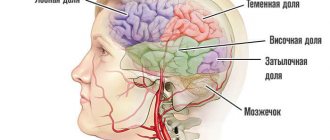The network of boarding houses "Zabota" improves the quality of life of older people, including those with senile insanity, which is also called dementia. Specialists will provide daily health monitoring, social adaptation, and comprehensive care for the person. After all, this disease requires special attention.
Our institutions in the Moscow region will help in the rehabilitation and recovery of patients with dementia.
If you do not have enough strength, opportunity or time to look after a relative, you can place him with us for the summer or for permanent residence. Thanks to the professionalism of the staff, clients in need of attention will receive vital assistance. Bring your loved ones to us, and we will be able to provide them with decent service. We will also prolong activity and longevity.
Senile insanity - what is it?
This is the name of the final stage of mental failure. Elderly people with this illness are forced to overcome difficulties every day, they cannot help their children and grandchildren, and they themselves need care and supervision.
Advanced years complicate the detection of pathology. The most important symptom is a complete change in the usual way of life, a loss of self-image. This is a pathology to which people of senile age (after 60 years) are prone. Therefore, special attention is needed to grandfathers and grandmothers.
Severe dementia is characterized by loss of personality. The person himself changes, his ways of contact with the world around him change. Basic skills to solve everyday problems and take care of oneself are lost. An irreversible process leads to psychological changes. An elderly person sometimes becomes dangerous to his own people and to strangers.
Causes of senile insanity
Dementia does not manifest itself in a healthy individual, only as a consequence of an existing disease. Latent pathology can occur without symptoms, but after complications it develops very quickly. This is an acquired disorder. Causes deterioration:
- nervous system disorders;
- pathological old age;
- bad heredity.
In older people, the immune system is weakened. When pathology occurs, it is activated against cellular formations, leading to a weakening of brain functions. The cause of degradation may be weakening of brain tissue and atrophy of the cortex. Cells also disintegrate under the influence of infections and viruses.
Note that alcohol also destroys the connections of neural formations. As a result, degeneration of brain functions occurs.
Leave a request for selection of a boarding house
for a person with dementia
Treatment of insanity
This disease cannot be completely cured. In a hospital setting, the patient is prescribed a course of therapy that can prolong the development of the pathology, slow down the development of deterioration and transfer the disease to a “dormant state” for a certain period.
Doctors recommend starting to prevent this complex diagnosis at a very early age. It is recommended to change your usual diet and lifestyle. The inclusion of foods rich in omega acids and vitamin E in the daily diet helps to significantly delay the onset of senile changes. The inclusion of fish and fresh vegetables in the diet brings benefits to the body. It is advisable to reduce salt and sugar intake.
When developing a course of therapy, the prescription of vitamin complexes and supporting agents is used to promote the activation of all life processes in the body.
What is senile insanity - symptoms and signs
Manifestations are difficult to correct without qualified help. If there are complications, the disease progresses quickly, and the chance of rehabilitation decreases with each stage.
The problem is clearly illustrated in the medical literature. Classic primary sign: exacerbation of negative character traits. These are hysteria, mood swings, gloominess, grumpiness, isolation. Life with an elderly person turns into a series of difficult challenges.
People with this disease bring home garbage and all kinds of rubbish. They do not throw anything away and prohibit others from doing so. Greed becomes inadequate. Egocentrism increases many times over. Similar personalities:
- do not worry about relatives;
- they forget the faces of children and grandchildren;
- indifferent to others;
- keep things that mean nothing.
It is very difficult to independently monitor such individuals. They require increased attention, control and patience:
- They stop taking care of themselves and forget about basic hygiene. If the senile person does not have relatives or friends, then they are found in houses where the rooms are filled with garbage and the smell is already bothering the neighbors.
- A sign of senile insanity in women is an unhealthy appetite. They forget about recent meals and may eat food uncontrollably.
- Even a previously developed person loses his will and personality under the influence of dementia. Instincts become more acute and become more important than socialization.
- If the frontal cortex is damaged, then the symptom is hypertrophied sexuality and cheeky behavior.
Elderly people with such mental disorders are not able to exist independently. Progression leads to complete loss of abilities. But if you contact the “Zabota” boarding house network, your loved ones will be provided with round-the-clock care and rehabilitation.
Temporary and permanent accommodation in comfortable rooms, supervision by specialists is possible. Individual programs that include exercises to activate new neural connections. Breathing exercises, sessions with a psychologist, fine motor skills training.
Late symptoms of senile dementia
As dementia progresses, symptoms become more severe. They allow specialists to establish an accurate diagnosis and determine the stage of development.
Amnestic phenomena
Memory impairment manifests itself in patients in different ways. They forget the purpose for which they go to this or that room, but do not take it seriously, considering it ordinary forgetfulness. Moreover, similar signs are observed in women who are under 65 years of age. Time orientation is greatly impaired. The patient remembers the present date for a long time, and is also unable to recognize places familiar from childhood.
Later, amnestic phenomena associated with the inability to remember faces appear. Even after several meetings and conversations with a person, a woman cannot remember him. Such a symptom should be a cause for concern.
At an advanced stage, the patient forgets the faces of relatives, and also cannot recognize her own reflection in the mirror. It is worth noting that changes occur gradually, progression takes from 15 to 20 years. When using memory enhancing products, this period increases.
Decreased mental activity
Impairment of speech and simple thought processes always accompanies dementia. At the initial stage, this is not so noticeable, but as the condition progresses, the symptoms also increase. The patient is unable to hold a pen, write or add simple numbers in her head.
Later, there is a gradual loss of the ability to acquire new skills. First, the patient stops performing her usual activities, for example, those related to her profession. After this, she loses the ability to learn anything, and also forgets the sequence of actions when performing ordinary household manipulations.
It is worth noting that the woman herself is embarrassed in the initial stages when she discovers her incompetence in a seemingly familiar issue. She tries to hide it from others and moves the conversation to another topic. Close people may mistake this for ordinary absent-mindedness, so they are in no hurry to contact a specialist.
Emotional manifestations of dementia
Senile dementia (symptoms and signs vary individually among women) is almost always accompanied by emotional disorders. At first, they are associated with the fact that the patient realizes the inevitability of such changes. She understands the complexity of the situation and withdraws into herself, trying to isolate herself from society.
When other forms of disorder occur, she breaks down, which manifests itself in depression or aggression for no reason. All character traits that previously defined personality become more noticeable. Thrift turns into greed, modesty into preventing any contact.
In addition, a woman often becomes depressed and shows indifference to things that occupied most of her time before her illness. Her mood changes frequently and unexpectedly. It is at this stage that others begin to notice that the woman is unwell.
Physical side of life
Changes in neural connections and brain function certainly lead to the involvement of motor activity centers in the process. The patient's movements become inaccurate and coordination is impaired. She quite often loses her balance and gets injured.
Since the work of all internal organs is disrupted, the body is exhausted, and the patient is weakened. She gets tired quickly and cannot travel long distances. Such changes only aggravate the emotional state, because the patient realizes her helplessness and this upsets her.
Communication and attitude to life
After the first symptoms appear, the patient’s need for communication gradually decreases. At an advanced stage, she completely refuses to contact people and concentrates on her own personality. Even if a woman expresses her thoughts, this does not mean that she is trying to communicate. It's just a way of expressing yourself.
Quite often she also talks to fictional characters, answers her own questions, laughs or gets upset. The attitude towards life changes, the patient talks about death, but it does not scare her. As a rule, at an advanced stage, the patient even strives to die in order to get rid of everything at once. She becomes dangerous to herself and others.
Stages and symptoms of the disease
There are mild, moderate and severe. Each is characterized by the degree of manifestation:
- Easy. Symptoms of senile insanity at first are reduced to disturbances in the field of intelligence. Weakly expressed characteristics. Independence and skills in solving everyday issues are preserved.
- Moderate. Critical perception decreases sharply, and impairment of cognitive skills worsens. Previously familiar household appliances turn into an overly complex puzzle. There are problems with the door lock and intercom.
- Heavy. A person no longer retains independence, he loses memory and does not recognize relatives. Leads to weakening of self-control. Behavior becomes inappropriate, even to the point of increased aggression. Requires care and constant monitoring.
Leave a request for selection of a boarding house
for a person with dementia
How to recognize a mild degree
At the primary stage, negative character traits become aggravated. A previously generous pensioner transforms into a completely stingy down to the smallest detail, grouchiness, tearfulness, and anger increase. Having highlighted the characteristics of a mild degree, we can understand that the signs of senile insanity are:
- decreased intellectual abilities;
- inability to concentrate on one action for a long time;
- erasing dates, names, and recently occurring events from memory;
- mood swings, depression;
- insomnia due to anxiety;
- loss of interest in previously loved activities;
- changes at the neurological level.
The first signals indicating the onset of a moderate degree of illness
Primary symptoms worsen, new ones appear:
- An elderly person does not remember what he read a minute ago.
- May get lost in an unfamiliar place.
- Attention is scattered, the ability to concentrate is lost.
- Memories of the distant past emerge, but the patient will no longer remember recent events. Forgets the names of children, grandchildren, great-grandchildren, neighbors on the landing.
- Vivid outbursts of aggression are replaced by apathy and lack of will.
- Self-defense instincts become dominant and delusional ideas about danger appear. The old man has thoughts that everyone around him is plotting something against him.
Signs of senile dementia in women at this stage are more pronounced. Close people are accused of deliberately wanting to harm the patient.
There may be sudden improvements that quickly disappear. Neurological symptoms are added. Urinary incontinence, hallucinations, frequent falls. Epileptic seizures are common. Passive control is required.
Manifestations of the advanced phase of disorders in old age
During this period a person:
- I’m no longer ready to remember my own name and age,
- cannot identify himself in the mirror, does not recognize anyone from the family.
- Vocabulary is reduced to a minimum. Speech becomes so poor that the patient is unable to name some objects and phenomena.
- Understanding of what is happening is impaired.
- The skills of reading, writing, and listening to long texts disappear. Depression turns into elation. Life borders on paranoia.
Senile insanity manifests itself as a loss of cognitive abilities. The patient can talk to himself or to a non-existent interlocutor, perceives even a loved one as an enemy, and displays open aggression. Hallucinations and paranoia make him dangerous to others. He can no longer cope without outside help. He needs to be fed, washed, and changed. And under no circumstances should you leave him alone.
Therefore, if you do not have the opportunity to organize round-the-clock supervision for a relative, it is better to send him to our boarding house. Here they will not only provide care, but also prescribe treatment. After all, if senile insanity is not treated as a disease, then life expectancy is reduced to five years.
Causes of dementia.
There are quite a few causes of senile dementia. Mainly:
- Alzheimer's disease (the most common cause of dementia);
- dementia with Lewy bodies;
- vascular dementia;
- frontotemporal dementia;
- mixed dementias (in which features of dementia such as Alzheimer's disease and features of vascular dementia simultaneously coexist).
Less common causes of dementia include:
- Parkinson's disease;
- hydrocephalus with normal pressure;
- Creutzfeldt-Jakob disease;
- syphilis of the central nervous system.
It is also worth noting here that dementia
has other reasons - examples include:
- vitamin B12 deficiency;
- hypothyroidism;
- haemorrhoids;
- depressive disorders;
- tumors of the peripheral nervous system.
The first signs of dementia in women and men
There are significant differences and common features in the development of mental disorders in different sexes. But any initial manifestation is characterized by:
- speech problems;
- impaired perception and recognition;
- inability to perform a sequence of actions without difficulty;
- need for daily care and attention.
You should see a doctor immediately; you cannot wait until a mild stage of mental disorder develops into more serious ones and the personality begins to rapidly degrade.
What are the stronger sex exposed to?
Note that in them it does not manifest itself as clearly as in women, but the end result is still deplorable. Senile dementia in men - signs:
- penchant for moralizing;
- suspiciousness - believes that everyone around him poses a danger to him;
- grouchiness, when a pensioner is annoyed even by care and a good-natured attitude;
- do not accept the opinion and judgment of another person;
- treats everything new categorically;
- greed, egocentrism, and jealousy worsen;
- excessive boastfulness.
All this gradually leads to personality degradation and loss of any skills, loss of capacity and independence. The last stage is irreversible.
Female dementia
Symptoms and signs of senile dementia are more common in women than in men. Moreover, these moments are more pronounced, which means the disease progresses faster. Characteristic features of insanity:
- stubbornness;
- tearfulness;
- increased self-pity;
- manic suspicion;
- a thirst for attention, replaced by a desire for total loneliness.
The manic delirium of damage intensifies. Often a pensioner is sure that her loved ones no longer love her and wish her death. She is afraid of being poisoned and does not accept food from relatives.
Differences in both sexes
The female manifestation is characterized by more pronounced emotional instability; patients remain depressed longer. Symptoms of senile insanity are generally more severe in women than in men. They are also more stubborn and suspicious. Prone to delirium and excessive tearfulness. But, at the same time, they are less aggressive. Due to the vulnerability of a person in a healthy state, it is more difficult for them to detect the first bells signaling trouble.
The stronger sex is prone to depression, turning into apathy. They lose weight and begin to neglect hygiene. Anger and stinginess worsen. Increased drowsiness and periods of insomnia due to unexplained anxiety were also noted.
The first symptoms of senile dementia
Senile dementia progresses gradually in most cases. Symptoms and signs in women do not immediately cause concern for loved ones. They are often attributed to ordinary manifestations characteristic of an elderly person.
The first symptom is memory impairment. The patient is unable to remember events that happened not so long ago. However, most often she is well versed in memories from the past, is able to talk about the smallest details and systematize her thoughts. Further, loved ones may notice a manifestation of sloppiness and a lack of interest in past hobbies.
The woman becomes indifferent, as if ready to say goodbye to life. From time to time she gets depressed.
Disorientation in time also becomes one of the first manifestations. The woman understands where she is, but is not aware of the time of day . In addition, difficulties arise when you find yourself in an unfamiliar place.
The thought process slows down. The patient spends more time solving simple everyday tasks. At the same time, such delay provokes nervousness. Another early manifestation of dementia is the refusal of habitual communication with family. The woman begins to avoid meetings and tries to remain alone.
Therapy
Under the supervision of competent specialists, the progression of the disease can be stopped. The doctor may prescribe tocopherol, pyridoxine, thiamine. When severe psychosomatic symptoms occur, tranquilizers are prescribed.
But although the doctor will monitor the symptoms and prescribe treatment for senile insanity, it is impossible to completely cure it. But you can make your relative’s life easier. The “Zabota” boarding house network will help with this. We enable people with dementia to live full lives. This is facilitated by:
- individual approach and building a rehabilitation program for each elderly person with a complex illness;
- special lesson program;
- accommodation in comfortable rooms with daily cleaning. 24-hour care;
- animation and entertainment programs that are designed to restore memory and develop personality.
In addition, there are five meals a day, walks in the fresh air and health-improving gymnastics under the supervision of a specialist, and organization of proper leisure time. Communication with peers is valuable. Many find friends or even spouses.
Diagnostics
Senile dementia (symptoms and signs in women are taken into account when diagnosing) is not so easy to identify, especially in the early stages. Various methods are used for examination.
| Method | Description |
| General inspection | The doctor examines the skin, mucous membranes, and notes visible accompanying disorders |
| Clinical researches | A blood and urine sample is taken to identify abnormalities in the internal organs |
| Special tests to detect deviations | The specialist asks the patient to talk about recent events, repeat a few words and solve the simplest problems |
| Survey of relatives | Interviewing the patient’s relatives allows us to complement the clinical picture and clarify the nuances of behavior |
| MRI | The technique helps to see the localization of the lesion in the images, which facilitates diagnosis |
Sometimes a DNA test of the patient is required, which helps confirm or exclude a hereditary predisposition. The method is used when symptoms of genetic diseases are present.
What should relatives do?
Signs and symptoms of senile dementia make everyday life difficult for family members of an elderly person. It is important to be patient and maintain composure. Sharp manifestations of aggression and discontent on the part of the family can only aggravate the condition.
Relatives should monitor the intake of medications and adherence to the prescribed diet. Be sure to go out together for walks and delight the sick person with gifts and pleasant conversations. Practical and emotional support is required.
Forecast
An incurable disease without qualified help constantly progresses. Psychological degradation ranges from one to ten years. At the last stage, the patient should not be left unattended, since inappropriate behavior can affect the life and health of others.
The cause of death can be cachexia - extreme exhaustion of the body, falls and bedsores, or an accident. It is possible that a person who stops taking care of himself will catch some serious infection.
Symptoms and signs of senile insanity worsen more quickly in older women and men. Without proper attention, it ends in the loss of any cognitive abilities.
How to deal with senile insanity
The condition is analyzed and diagnosed by a physician. Treatment is prescribed for each specific patient. In addition to drug treatment, diet and psychotherapy are provided.
You need to deal with manifestations under the supervision of a specialist. At the initial stage, you can do everything at home, but later stages are better treated in boarding houses and specialized institutions.
It is necessary to equip the living space with non-slip handrails and mats, and, if necessary, acquire a wheelchair and a bed. Diet, exercises to develop the brain, memory, motor skills, and regular repetition of what you have learned will help combat the progression of the disorder.
Clinical picture
The first signs of senile dementia appear in people after 65 years of age. Moreover, the disease occurs 2-3 times more often in women than in men. The property of this pathology is a tendency to constant progression.
An early symptom is a change in certain personality traits. Older people become suspicious, stingy and overly stubborn. Many gradually develop selfishness, coldness towards even close relatives and emotional coldness. Such symptoms develop slowly, which may explain the infrequent seeking of medical help.
Over time, cognitive functions are impaired: the ability for abstract thinking and creativity is lost, criticism disappears, new knowledge and skills are not consolidated. Memory changes are a characteristic manifestation of neurodegenerative and senile dementia. First of all, memory for recent events suffers, however, amnesia progresses during the course of the disease and the patient loses life experience, skills and knowledge.
Subsequent progression is characterized by a violation of orientation in time. Patients often perceive themselves at a younger age, and the people around them at their earlier stages of life. Gradually, the patient ceases to recognize his relatives and begins to confuse them. In the last stages of dementia, the patient is unable to recognize himself in the mirror, as he associates himself with a younger age.
With pronounced pathological changes in the brain, patients develop delusional ideas. Thoughts that they are being robbed by loved ones and people around them interfere with normal communication. A person often puts money, food, and household items in secluded places because he is afraid that he will be robbed, or he becomes poor for other reasons.
People with senile dementia experience more age-related changes in their bodies than people of a similar age without dementia. The most typical symptoms are exhaustion of the body, decreased skin turgor, baldness and various diseases of the internal organs, including neurological disorders.
Physical and mental exhaustion leads to the fact that somatic diseases progress rapidly, often causing the death of patients.











